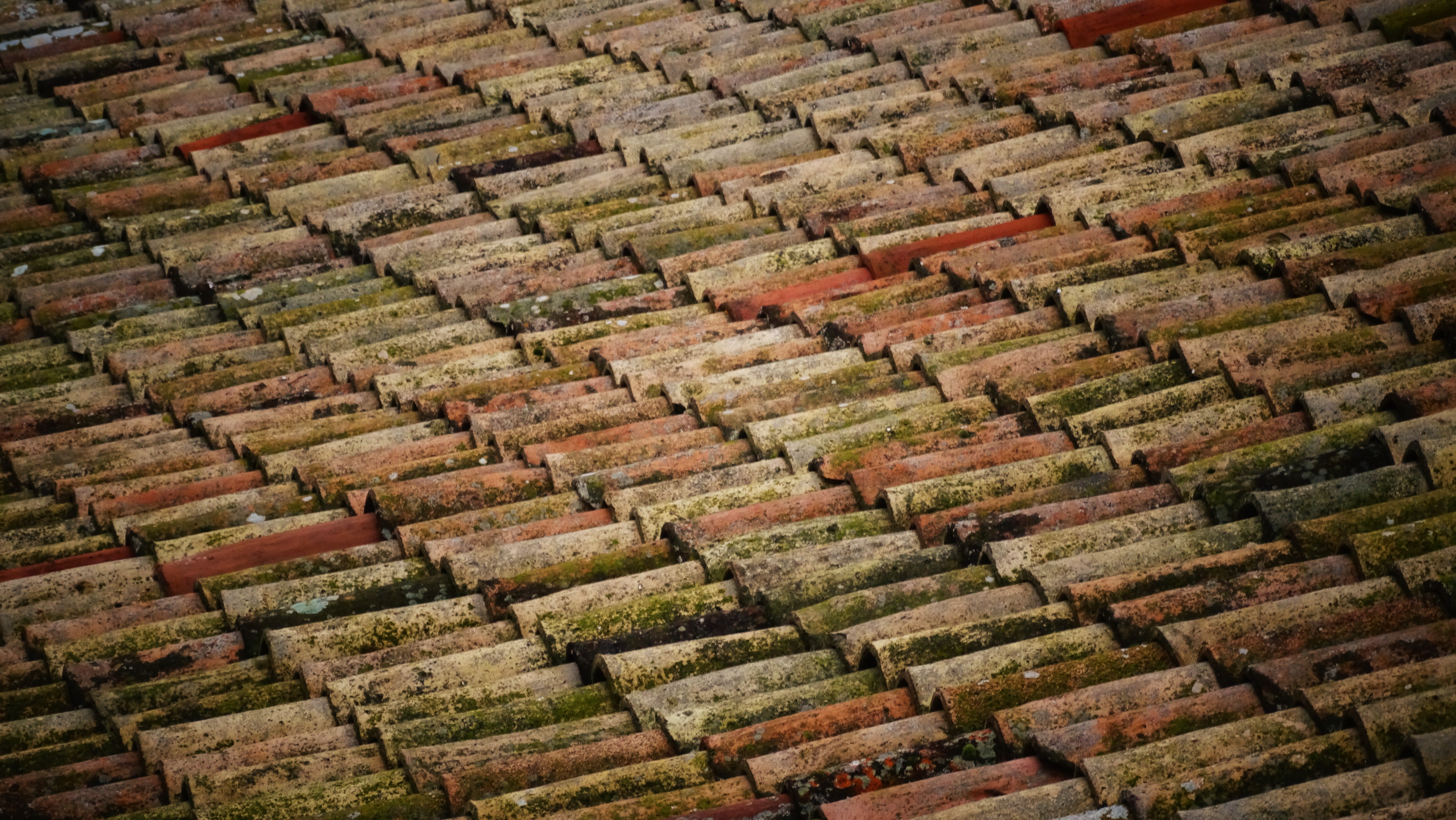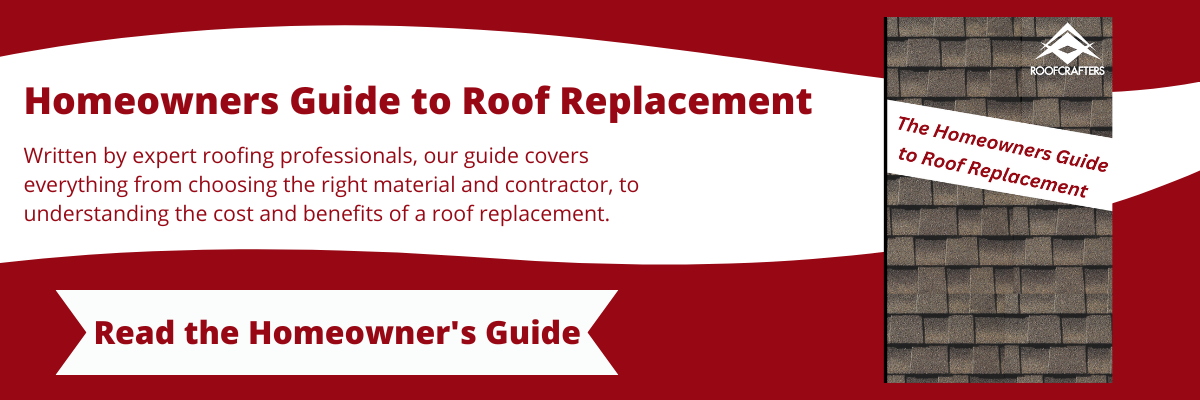
You've finally found the home you want to live in for the foreseeable future! But there's a catch- the roof is old. Whether it's your dream home or a starter, being a potential homeowner brings feelings of independence and happiness to most. Sometimes, being uncertain about specific elements in the home can leave you with concerns, though. No one wants to commit to a massive investment like a home only to regret it later.
What happens when you buy a new home with an old roof? Is that an issue or a liability? Those are valid questions that many homeowners face when homebuying. Not every home is brand spanking new, but it doesn't mean they're any less desirable or not worth buying. The truth is, there are a few things you should do before deciding on a home with an old roof, and we're delighted to share them with you.
At RoofCrafters, we've repaired and replaced aging roofs since 1993. Over the past three decades, we've learned quite a few tips and tricks to help you navigate roof concerns when buying a home. For many new homeowners, it's challenging to know what to do when faced with hard roof decisions.
This article covers what to do when you're considering a home with a roof that's been around for a while. By the time you finish reading, the skies will (hopefully) clear a little more for you to know what to do before you commit to a residence with an aging roof. If you're ready to begin, so are we!
New Home, Old Roof- What's Next?
So, your new home has an old roof. While some wouldn't think twice, spending a little extra time deciding if this is the home for you is vital.
What should you do first?
Have an inspection performed by a licensed, professional roofer. At this point, you know the roof is old but don't know how old. You may be tempted to do a look-over yourself and determine that way, but it's always best to have an expert take a look. They have a knack for seeing things that others gloss over, which is why they're professionals. *wink*
What's a roof inspection?
When your roofer performs an inspection, they're doing a thorough evaluation of your roof to determine if you need repairs or a replacement. A roofing professional is critical in helping you find out what the structural integrity of your home is standing at and letting you know how much life your roof has left.
A roof inspection checklist usually involves an evaluation of the following:
1. Tears/Cracks
2. Ponding Water
3. Rusted/Loose Nails
4. Edge Detail
5. Mold and Algae Growth
6. Clogged Gutters
A reliable roofing company can help you detect any issues with your roof and help you come up with solutions. Don't think of an inspection as intimidating. Though you may feel nervous about the outcome (understandable, by the way), know that a great roofer is there for you and wants you to feel happy and secure in your home.
Roof Inspection Breakdown
Inspections are thorough procedures involving your roofer inspecting various roof elements. As shown in the list above, your roofer is looking for specific issues that are a cause for concern. It doesn't hurt and is actually recommended to document any damages you see. Take written notes and snap pictures for your personal documentation and to show your roofer.
Cracks and Tears
At the beginning of the inspection, your roofer will look for any abrasions, cracks, or holes in the roof's membrane. If your roof has expansion joints, they'll carefully examine them to detect cuts, tears, or gaps. If your roof has flashings, they'll look over those, too.

Ponding Water
Professional roof inspectors also look for slow-draining lines and blocked areas to check for visible signs of ponding water. An obvious sign of water ponding is a change in color or spot staining on your roof around drains. If water sits for a considerable time, the area will begin showing signs of damage. Even if you suspect ponding water on your roof, only a professional evaluation can help determine if the standing water caused any underlying damage to the structure.

Rusted or Loose Nails
Old, rusted, brittle, missing, or loose nails in your roof are warning signs that the slate or tiles are coming loose. Not only can this debris be dangerous (yes, it can fall and hit people), but it also leads to roof leaks. Roofing problems such as this should be addressed immediately!

Edge Detail
Edge details are another critical aspect of preventive roofing maintenance that needs inspection. You have to ensure all of the edge materials are secured down tightly and terminated to prevent roof leaks.

Mold and Algae Growth
If your roof isn't getting proper ventilation, everyone's enemy (mold) comes out to play- or take over your home. Roofers check for signs of decay, fungus, and algae growth during inspections.

Clogged Gutters
Finally, your roofer will take a look at those gutters. Many homeowners neglect their gutters because of fears of heights, so clogging is common but hazardous to your roof. Your inspector will look for warped material, debris buildup, and improper installation.
Once your inspection is over, your roofing professional will let you know their thoughts. This is an essential step in the process because it'll help you decide your course of action. Listen to your roofer and consider what they're telling you when determining if you want to go all in on a new home with an old roof.

Knowledge is Power
Knowing exactly what to expect from your new home with an old roof will help you feel much clearer about it. Ask the previous (or current) homeowner for records of repairs. Assuming they're honest, they can give you more information about the home's roof.
How old is the roof?
What's its history?
When was the last time it was repaired?

If you're told the roof is around fifteen years old, you'll know that you must expect to replace it roughly about five years down the line. If you're not comfortable with that, hey, at least you know now! Asking questions is vital when faced with situations like these. Don't be afraid to get answers. A home is a significant investment. Ensure you're making the right choice!
Are You Ready for A New Roof?
It's possible! If you're interested in purchasing a home with a questionable roof, never hesitate to contact a professional. If you suspect the roof needs appropriate assessment, schedule an inspection with a trusted roofing contractor. A highly skilled expert will help you every step of the way to ensure you don't walk into a bad investment.
At RoofCrafters, we want you to know that the roof you've always dreamed of is closer than you think. However, if you need to do a bit more research before making any commitments, check out our learning center! Whether your roofing concern is common or unique, we may have some resources to refer to before calling in. But if you're ready to get in touch with one of our friendly representatives, head to our contact page.
My name is Kevin Mills, and I am the lead estimator for RoofCrafters’ Tampa division. I’m originally from Michigan, and I enjoy hunting, fishing, and spending any free time outdoors. What I’m most passionate about, though, is helping business owners and homeowners alike achieve their roofing goals, all while providing a seamless customer journey.





